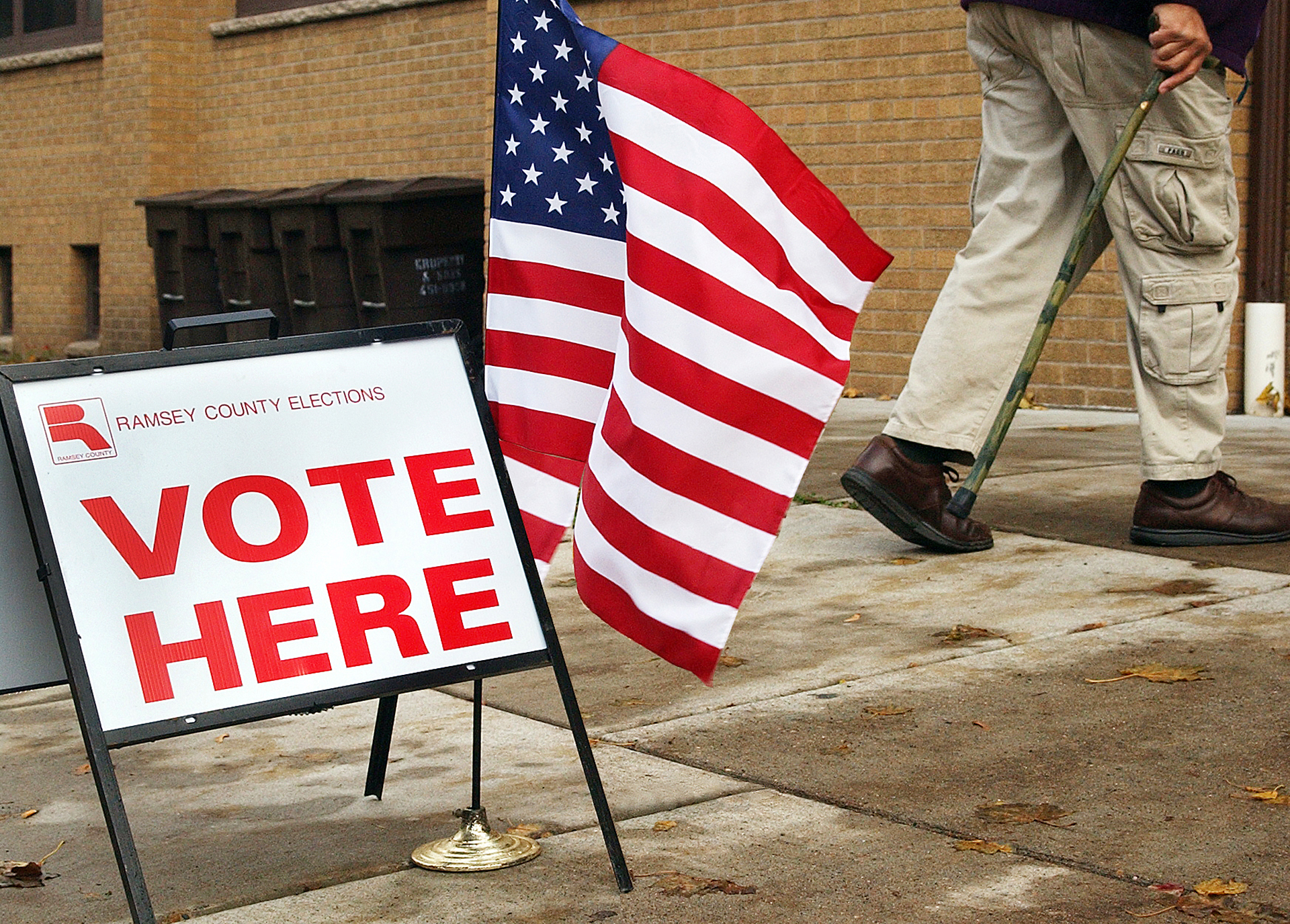Omnibus elections bill declared a winner by majority of House committee

Nobody received an “I Voted” sticker, but the votes have been counted.
While far from unanimous — it was 8-3 along party lines — the omnibus elections finance and policy bill was nonetheless approved Friday.
Rep. Mike Freiberg (DFL-Golden Valley) chairs the House Elections Finance and Policy Committee and sponsors a delete-all amendment to HF1723, that, itself, was amended with five largely technical additions.
“The bill does three main things that I’m proud of: it protects our election workers and our voters, it makes registration and voting easier and more accessible, and it provides clarity on who is funding our elections,” he said of the $24.1 million package — $9.5 million over base — going to the House Ways and Means Committee.
[MORE: Read about the bill; View the spreadsheet]
Republicans were united in their displeasure with the total package, largely because it lacks bipartisanship.
Rep. Paul Torkelson (R-Hanska) said, by his count, 71 bills were referred to the committee, 23 sponsored by Republicans. One was heard, received broad support, yet is not in the final product.
Additionally, he said the final product is “far afield” of the tradition that election bills be bipartisan, something he said Gov. Tim Walz supported as recently as 2019. The lone amendment offered by Republicans would have deleted sections that did not receive bipartisan support.
“We have no bipartisan support in this bill, we have not restored people’s confidence with this bill, and I have many concerns with the security of our elections with this bill,” said Rep. Ben Davis (R-Merrifield).
New funding includes dollars to support increasing needs of county and municipal administrators, and the bill would also provide a state requirement for receiving federal Help America Vote Act funds, expand early voting, and increase oversight by the Campaign Finance and Public Disclosure Board.
Among its policy, the bill would allow for automatic voter registration; pre-registration to vote for 16- and 17-year-olds; voters could join a permanent absentee voter list for automatic delivery of an absentee ballot; and for an employee to be absent from work without lost wages or other penalty for the needed time to vote during the 46 days prior to an election.
A voter would be permitted to cast a ballot using a live ballot box during the 18 days prior to an election, including weekends, at locations designated by the county auditor or municipal clerk; and more protections would be established for elections officials, poll workers, voters, and candidates.
“A lot of provisions in here are not added by special-interests, but they’re actually very popular both in Minnesota and across the country. Automatic voter registration, pre-registration, we see in red states and blue states, we see in states that are asking what is good, convenient, and accessible to their voters,” said Rep. Emma Greenman (DFL-Mpls).
Related Articles
Search Session Daily
Advanced Search OptionsPriority Dailies
Speaker Emerita Melissa Hortman, husband killed in attack
By HPIS Staff House Speaker Emerita Melissa Hortman (DFL-Brooklyn Park) and her husband, Mark, were fatally shot in their home early Saturday morning.
Gov. Tim Walz announced the news dur...
House Speaker Emerita Melissa Hortman (DFL-Brooklyn Park) and her husband, Mark, were fatally shot in their home early Saturday morning.
Gov. Tim Walz announced the news dur...
Lawmakers deliver budget bills to governor's desk in one-day special session
By Mike Cook About that talk of needing all 21 hours left in a legislative day to complete a special session?
House members were more than up to the challenge Monday. Beginning at 10 a.m...
About that talk of needing all 21 hours left in a legislative day to complete a special session?
House members were more than up to the challenge Monday. Beginning at 10 a.m...